The Dawn of a New Era in Functional Beverages
Gone are the days when a simple cup of coffee was enough to kickstart our mornings. The beverage landscape has evolved dramatically, ushering in a new era of functional drinks designed to do more than just quench our thirst or provide a caffeine boost.
At the forefront of this revolution are adaptogenic drinks, sophisticated concoctions that harness the power of natural compounds to help our bodies adapt to stress and promote overall well-being.
As someone who’s been closely following this trend, I can’t help but be excited about the potential these drinks hold. They represent a fascinating intersection of ancient wisdom and modern science, offering a natural approach to managing the challenges of our fast-paced lives.
What Are Adaptogens, Anyway?
To understand the buzz around adaptogenic drinks, we first need to grasp the concept of adaptogens themselves. These are natural substances, typically herbs or mushrooms, that have been used for centuries in traditional medicine practices like Ayurveda and Traditional Chinese Medicine.
What sets adaptogens apart is their unique ability to help the body resist stressors of all kinds, whether physical, chemical, or biological.
The term “adaptogen” was coined in the 1940s by Dr. Nikolai Lazarev, a Soviet scientist studying the body’s resistance to stress. For a substance to be classified as an adaptogen, it must meet three criteria:
- It must be non-toxic to the body.
- It must produce a nonspecific response in the body, increasing resistance to a variety of stressors.
- It must have a normalizing effect on physiology, regardless of the direction of change from physiological norms caused by the stressor.
Some common adaptogens you might find in these trendy drinks include:
Ashwagandha: An herb revered in Ayurvedic medicine for its stress-reducing properties. It’s known to help lower cortisol levels and improve resilience to stress.
Rhodiola: Often used to combat fatigue and enhance mental performance. It’s particularly popular among athletes and students for its potential to improve endurance and cognitive function.
Holy Basil (Tulsi): A sacred plant in Hinduism, holy basil is prized for its diverse health benefits, including stress reduction, immune support, and anti-inflammatory properties.
Reishi Mushroom: Known as the “mushroom of immortality” in Chinese medicine, reishi is valued for its immune-boosting and stress-reducing effects.
The Science Behind Adaptogenic Drinks
You might be wondering if these drinks actually deliver on their promises or if it’s all clever marketing. While more research is needed, there’s a growing body of scientific evidence supporting the benefits of adaptogens.
These natural compounds work at a molecular level, helping to regulate our stress response system.
When we’re stressed, our bodies go through a three-stage response: alarm, resistance, and exhaustion. Adaptogens are believed to help us stay in the resistance phase longer, enhancing our ability to cope with stress without sliding into exhaustion.
A study published in the journal Pharmaceuticals found that adaptogens exhibit neuroprotective, anti-fatigue, antidepressive, anxiolytic, and central nervous system stimulating activity. This means they could potentially help protect our brains, fight fatigue, improve mood, reduce anxiety, and boost mental performance.
Another study in the Chinese Journal of Integrative Medicine showed that Rhodiola rosea could improve endurance exercise capacity in young healthy volunteers. This suggests that adaptogenic drinks containing rhodiola might be useful for athletes or anyone looking to enhance their physical performance.
The Rise of Adaptogenic Drinks in Popular Culture
The surge in popularity of adaptogenic drinks stems from a perfect storm of factors. Rising stress levels in society, growing interest in natural health solutions, and a booming functional beverage market have all contributed to their ascent.
Wellness-conscious millennials and Gen Z consumers are particularly drawn to these drinks. They’re seeking choices to traditional caffeinated beverages that can provide sustained energy without the jitters or crash often associated with coffee.
Major beverage companies have taken notice of this trend. We’re seeing adaptogenic ingredients popping up in everything from sparkling waters to cold brew coffees.
Even some alcohol companies are getting in on the action, creating “better for you” cocktail mixers infused with adaptogens.
This trend extends beyond ready-to-drink beverages. Adaptogenic powders and tinctures are becoming increasingly popular, allowing consumers to create their own custom drinks at home.
This DIY approach appeals to those who want more control over their ingredients and dosages.
Crafting Your Own Adaptogenic Elixirs
One of the exciting aspects of this trend is how accessible it is. While there are plenty of pre-made adaptogenic drinks on the market, it’s also relatively easy to create your own at home.
This allows for customization based on personal preferences and specific health goals.
Here’s a simple recipe to get you started:
Stress-Busting Golden Milk
Ingredients:
- 1 cup plant-based milk
- 1 tsp turmeric
- 1/2 tsp ashwagandha powder
- 1/4 tsp cinnamon
- A pinch of black pepper
- Honey to taste
Instructions:
- Warm the milk in a small saucepan over medium heat.
- Whisk in the turmeric, ashwagandha, cinnamon, and black pepper.
- Simmer for 5 minutes, stirring occasionally.
- Remove from heat and add honey to taste.
- Strain if desired and enjoy!
This golden milk is delicious and packs a powerful adaptogenic punch. The ashwagandha helps combat stress, while the turmeric provides anti-inflammatory benefits.
The black pepper enhances the absorption of turmeric’s active compounds, making this a truly synergistic blend.
Popular Adaptogenic Drink Combinations
As the adaptogenic drink trend continues to grow, certain combinations have emerged as favorites among consumers and wellness experts. Here are a few popular blends you might want to try:
Reishi Coffee: Adding reishi mushroom powder to your morning coffee can help balance out the stimulating effects of caffeine while providing immune support.
Try this product from Amazon: Real Mushrooms Reishi
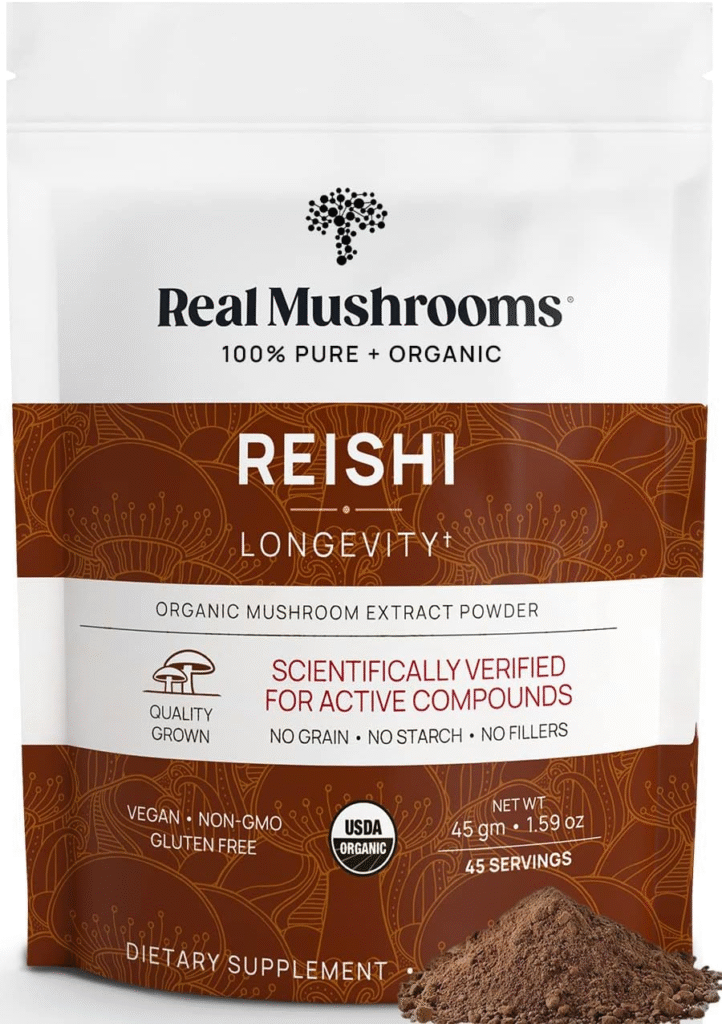
Ashwagandha Smoothie: Blending ashwagandha powder into a fruit smoothie is a great way to incorporate this stress-busting adaptogen into your daily routine.
Try this product from Amazon: Himalaya Organic Ashwagandha Powder
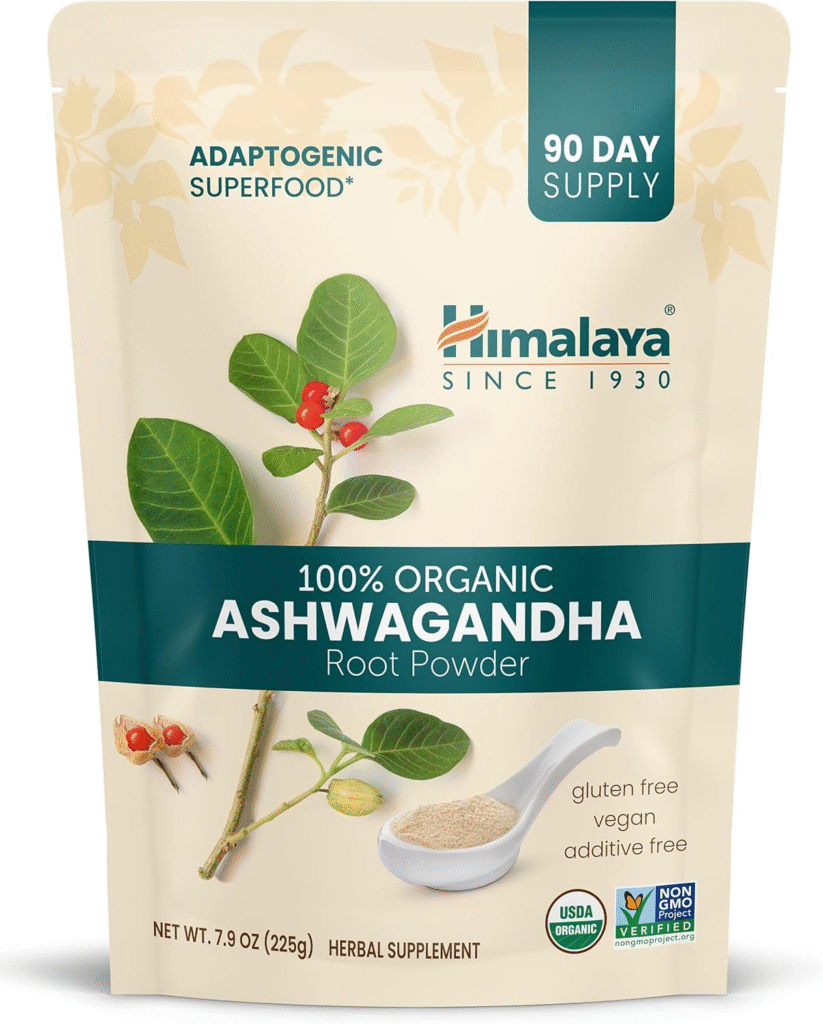
Rhodiola Tea: Steeping rhodiola root in hot water creates a slightly bitter tea that’s known for its energizing and mood-boosting properties.
Try this product from Amazon: ethnospot Rhodiola Rosea Teabags
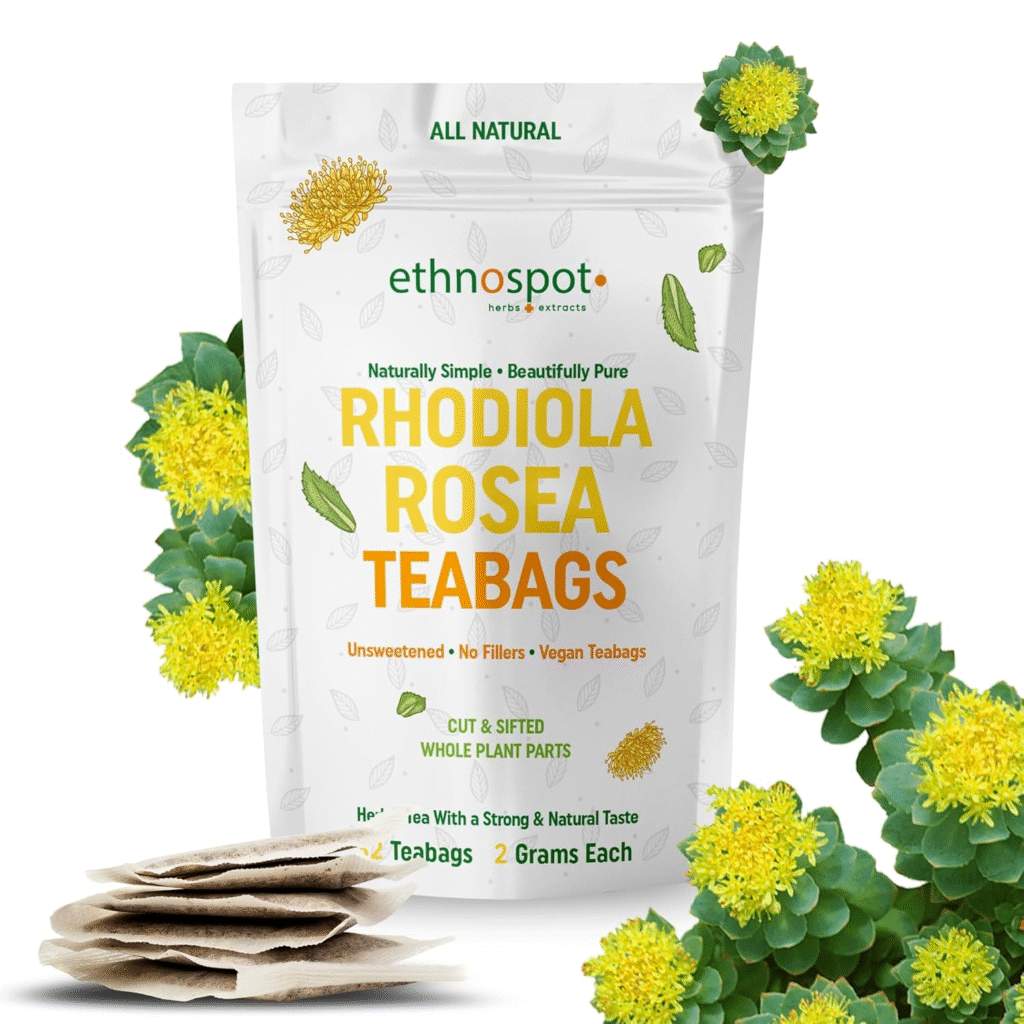
Holy Basil Lemonade: Adding holy basil (tulsi) to homemade lemonade creates a refreshing drink with adaptogenic benefits.
Try this product from Amazon: Jovvily Holy Basil Herbal Powder
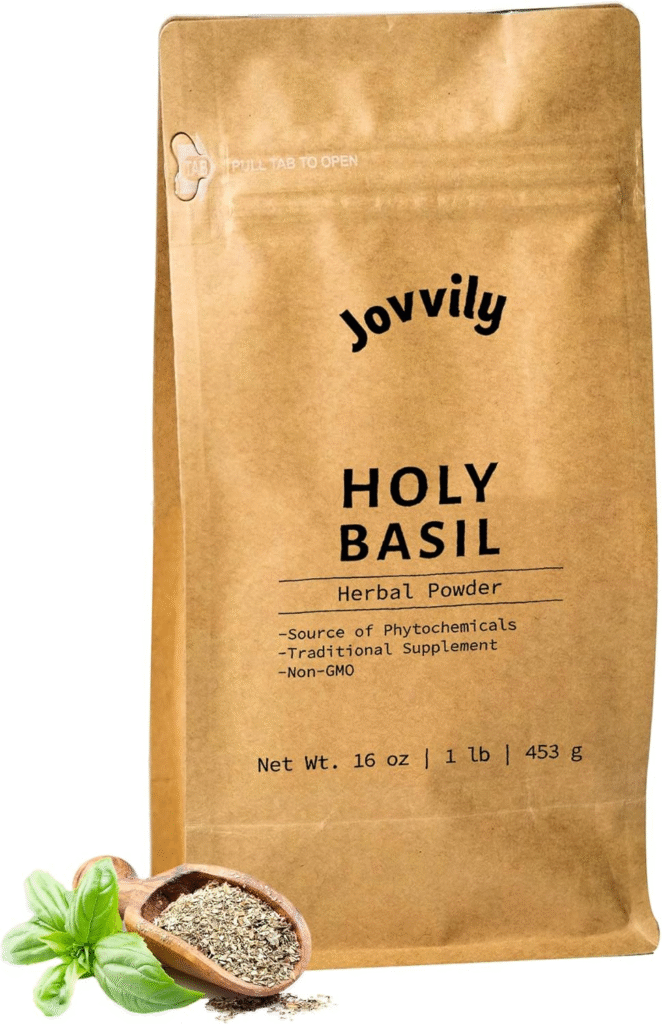
Cordyceps Pre-Workout Drink: Many athletes are turning to cordyceps mushroom powder in their pre-workout drinks for its potential to enhance endurance and oxygen utilization.
Try this product from Amazon: Nutricost Organic Cordyceps Mushroom Powder
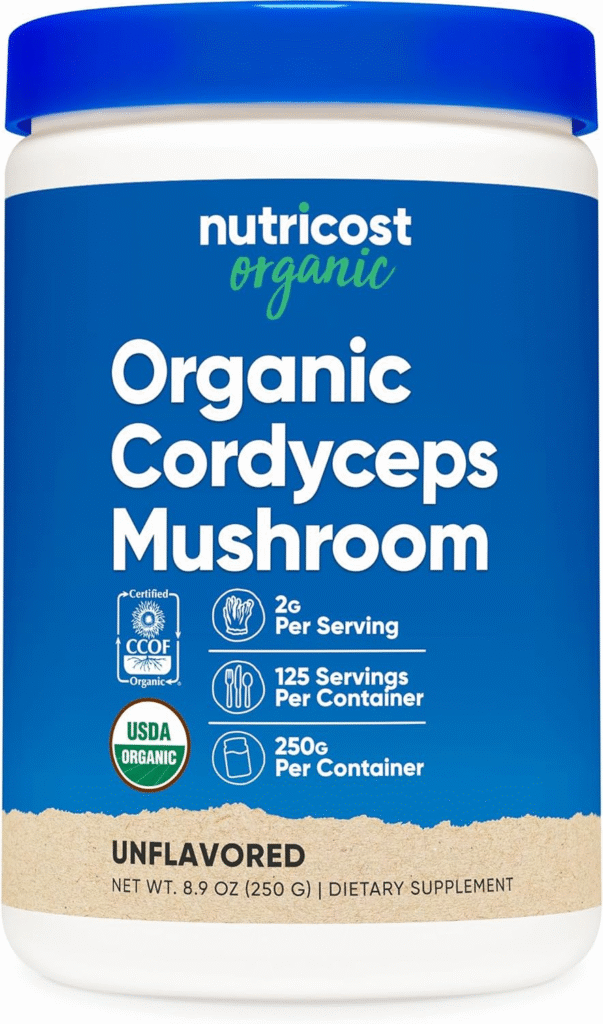
The Role of Adaptogens in Stress Management
Stress has become a pervasive issue in modern society, affecting our physical health, mental well-being, and overall quality of life. Adaptogenic drinks offer a natural approach to managing stress by supporting our body’s stress response system.
When we experience stress, our bodies release cortisol, often referred to as the “stress hormone.” While cortisol plays an important role in our fight-or-flight response, chronic elevation of this hormone can lead to a host of health issues, including weight gain, sleep disturbances, and decreased immune function.
Adaptogens like ashwagandha have been shown to help regulate cortisol levels. A study published in the Indian Journal of Psychological Medicine found that participants who took ashwagandha extract for 60 days experienced a significant reduction in cortisol levels compared to the placebo group.
Other adaptogens, such as rhodiola, have been found to influence brain chemicals that affect mood and emotional state. A review published in Phytotherapy Research noted that rhodiola may help reduce symptoms of mild to moderate depression and improve mood.
By incorporating adaptogenic drinks into our daily routines, we may be able to better manage our stress levels and improve our overall resilience to life’s challenges.
Adaptogens and Cognitive Function
Beyond stress management, many people are turning to adaptogenic drinks for their potential cognitive benefits. Several adaptogens have been studied for their effects on brain function, including memory, focus, and mental clarity.
Bacopa monnieri, for example, is an adaptogenic herb that’s been used in Ayurvedic medicine for centuries to enhance cognitive function. Modern research supports this traditional use, with studies showing that bacopa may improve memory formation and speed of information processing.
Lion’s mane mushroom is another adaptogen gaining popularity for its potential cognitive benefits. This unique fungus contains compounds that may stimulate the growth of brain cells and protect against age-related cognitive decline.
Ginkgo biloba, while not strictly an adaptogen, is often included in adaptogenic formulas for its potential to improve blood flow to the brain and enhance cognitive function.
As our understanding of these natural compounds grows, we’re likely to see more targeted adaptogenic drinks designed to support specific aspects of cognitive function.
Adaptogens and Physical Performance
Athletes and fitness enthusiasts are increasingly turning to adaptogenic drinks to support their physical performance and recovery. Certain adaptogens have shown promise in enhancing endurance, reducing fatigue, and speeding up recovery times.
Cordyceps mushroom, for instance, has been studied for its potential to improve oxygen utilization during exercise. A study published in the Journal of Dietary Supplements found that cordyceps supplementation improved exercise performance in healthy older adults.
Eleuthero, also known as Siberian ginseng, is another adaptogen that’s popular among athletes. It’s believed to enhance endurance and reduce fatigue, allowing for longer, more intense workouts.
Rhodiola rosea has also shown potential in enhancing physical performance. A study published in the International Journal of Sport Nutrition and Exercise Metabolism found that rhodiola supplementation reduced perceived exertion and improved endurance exercise performance.
As more research emerges, we’re likely to see adaptogenic drinks tailored specifically for pre-workout energy, post-workout recovery, and overall athletic performance.
The gut-brain axis, the bidirectional communication system between our gastrointestinal tract and our central nervous system, plays a crucial role in our overall health and well-being.
Some adaptogens, like reishi mushroom, have been found to have prebiotic properties, meaning they can help feed the useful bacteria in our gut. A healthy gut microbiome is associated with better digestion, stronger immune function, and even improved mood.
Other adaptogens, such as ashwagandha, may help reduce inflammation in the gut. Chronic inflammation in the digestive system has been linked to various health issues, including irritable bowel syndrome and inflammatory bowel disease.
As we learn more about the connection between gut health and overall wellness, adaptogenic drinks that support digestive health may become increasingly popular.
Adaptogens and Sleep Quality
While many people turn to adaptogenic drinks for daytime energy and focus, some adaptogens may also help improve sleep quality. This is particularly important given the prevalence of sleep issues in our society and the crucial role that good sleep plays in overall health.
Ashwagandha, for example, has been studied for its potential to improve sleep quality. A study published in the journal Cureus found that participants who took ashwagandha extract reported better sleep quality and less anxiety compared to those who took a placebo.
Reishi mushroom is another adaptogen that’s traditionally been used to promote restful sleep. While more research is needed, some studies suggest that reishi may help regulate the sleep-wake cycle and improve sleep quality.
As the importance of good sleep becomes increasingly recognized, we may see more adaptogenic drinks designed specifically for nighttime consumption to support restful sleep.
The Future of Adaptogenic Drinks
As we look to the future, it’s clear that adaptogenic drinks are more than just a passing trend. They represent a shift in how we think about beverages – not just as sources of hydration or pleasure, but as functional tools for supporting our health and well-being.
We’re likely to see continued innovation in this space, with new adaptogenic ingredients being discovered and novel combinations being developed. There’s also potential for personalization, with drinks tailored to person stress patterns and health goals.
Advancements in technology may also play a role in the future of adaptogenic drinks. We might see smart devices that can recommend specific adaptogenic blends based on real-time biometric data, such as stress levels or sleep quality.
As research in this field progresses, we may gain a deeper understanding of how these ancient herbs interact with our modern bodies, leading to more targeted and effective formulations.
Potential pitfalls, problems, issues, problems, issues, problems, issues and Precautions
While adaptogenic drinks offer many potential benefits, it’s important to approach them with a balanced perspective. Here are a few things to keep in mind:
Not a magic bullet: Adaptogenic drinks work best as part of a holistic approach to wellness that includes proper nutrition, regular exercise, and good sleep habits. They’re not a substitute for a healthy lifestyle.
Interactions with medications: Some adaptogens can interact with certain medications. If you’re on any prescription drugs, it’s crucial to talk to a healthcare professional before incorporating adaptogenic drinks into your routine.
Quality matters: The effectiveness of adaptogenic drinks largely depends on the quality and potency of the herbs used. Look for reputable brands that source their ingredients responsibly and provide third-party testing results.
Individual responses vary: The effects of adaptogenic drinks can vary from person to person. What works wonders for your friend might not have the same impact on you.
Moderation is key: While adaptogens are generally considered safe, it’s possible to overdo it. Start with small amounts and pay attention to how your body responds.
Embracing the Adaptogenic Revolution
The rise of adaptogenic drinks is a testament to our growing desire for natural, holistic approaches to health and wellness. These beverages offer a unique blend of ancient wisdom and modern science, providing a potential tool for navigating the stresses of contemporary life.
Whether you’re a stressed-out professional looking for a coffee choice, an athlete seeking natural performance enhancement, or simply someone interested in exploring new ways to support your well-being, adaptogenic drinks offer an intriguing option.
As with any wellness trend, it’s important to approach adaptogenic drinks with a mix of enthusiasm and healthy skepticism. Do your research, listen to your body, and don’t be afraid to experiment to find what works best for you.
Frequently Asked Questions
What are adaptogenic drinks?
Adaptogenic drinks are beverages that contain herbs or mushrooms known as adaptogens. These natural substances are believed to help the body adapt to stress and promote overall well-being.
How do adaptogenic drinks work?
Adaptogenic drinks work by containing compounds that interact with the body’s stress response system. They may help regulate cortisol levels, support adrenal function, and enhance the body’s resilience to various types of stress.
Are adaptogenic drinks safe?
Generally, adaptogenic drinks are considered safe for most people when consumed in moderation. However, as with any supplement, it’s important to talk to a healthcare professional before adding them to your routine, especially if you have any pre-existing health conditions or are taking medications.
Can adaptogenic drinks replace my morning coffee?
While some people find that adaptogenic drinks provide a more balanced energy boost than coffee, they work differently in the body. Some adaptogenic drinks contain caffeine, while others don’t.
It’s a personal choice whether to use them as a coffee replacement or in addition to your regular coffee routine.
How long does it take to feel the effects of adaptogenic drinks?
The time it takes to feel the effects of adaptogenic drinks can vary. Some people report feeling more energized or focused shortly after consuming them, while others notice benefits after consistent use over several weeks.
Can I make my own adaptogenic drinks at home?
Yes, many people enjoy making their own adaptogenic drinks at home. You can purchase adaptogenic powders or tinctures and add them to smoothies, teas, or other beverages.
However, it’s important to follow recommended dosages and talk to a healthcare professional if you’re unsure.
Are there any side effects of drinking adaptogenic beverages?
While adaptogens are generally well-tolerated, some people may experience side effects such as headaches, digestive upset, or changes in sleep patterns. If you experience any adverse effects, it’s best to discontinue use and talk to a healthcare provider.
Can adaptogenic drinks help with fat loss?
Some adaptogens may indirectly support fat loss efforts by helping to manage stress and cortisol levels, which can impact metabolism and food cravings. However, adaptogenic drinks are not specifically designed for fat loss and should not be relied upon as a primary fat loss strategy.
Are adaptogenic drinks suitable for everyone?
While many people can safely consume adaptogenic drinks, they may not be suitable for everyone. Pregnant or breastfeeding women, people with autoimmune conditions, and those taking certain medications should talk to a healthcare provider before incorporating adaptogenic drinks into their routine.
How do I choose a high-quality adaptogenic drink?
When choosing an adaptogenic drink, look for products from reputable brands that use high-quality, organic ingredients. Check for third-party testing certifications and clear labeling of adaptogenic ingredients and their amounts.
It’s also helpful to read reviews and do research on the specific adaptogens used in the product.
Key Takeaways
- Adaptogenic drinks harness the power of natural herbs and mushrooms to help the body manage stress and promote overall well-being.
- Scientific research supports many of the traditional uses of adaptogens, showing potential benefits for stress management, cognitive function, and physical performance.
- The popularity of adaptogenic drinks reflects a growing interest in natural, holistic approaches to health and wellness.
- While generally safe, it’s important to approach adaptogenic drinks with caution and talk to a healthcare professional, especially if you have pre-existing health conditions or are taking medications.
- The future of adaptogenic drinks looks promising, with potential for personalized formulations and integration with advanced health tracking technologies.
Disclaimer
The information contained in this post is for general information purposes only. The information is provided by Exploring the Trend: How Adaptogenic Drinks Are Revolutionizing Wellness and while we endeavor to keep the information up to date and correct, we make no representations or warranties of any kind, express or implied, about the completeness, accuracy, reliability, suitability or availability with respect to the website or the information, products, services, or related graphics contained on the post for any purpose.

